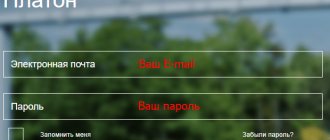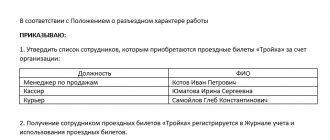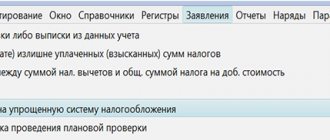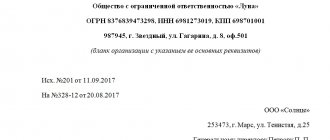According to studies, more than 60% of total damage is caused by trucks. Based on such information, the Government of the Russian Federation, together with the Federal Road Agency, decided to introduce a mandatory fee for additional load on the roadway in order to compensate for the cost of repair work.
What is the Plato system?
“Platon” is an electronic system for collecting tolls for the movement of trucks with a permissible maximum weight of over 12 tons on Russian federal highways, regardless of their environmental class. Coverage area: more than 50 thousand km of road. The name is derived from the phrase “payment per ton”. Launch date: 11/15/2015
All powers to ensure the functioning of the system and fulfill obligations are assigned to, which is its operator.
Pay for Plato via Sberbank Online
Payment in favor of the Plato web resource can be made in the following cases:
- replenishment of the account, that is, depositing money for travel on federal highways;
- making security payments, that is, payment for using the on-board device;
- payment for damage or loss of the on-board device.
Payment through Sberbank
The fastest and most convenient way to pay in favor of the Plato resource is to use the Sberbank online service. Go through identification and log in to online banking, and then go to the “Payments” section.
On the page that opens, go to the “Payments” block. Here you can enter the name of the payment collection service Plato in the top field and find the desired option or click on the “Transport” line in the list.
Now in the list that opens you need to find Plato and click on it to go to the selection of services.
A list of online service services will open, where you select the appropriate option and proceed to payment by selecting your card or account to debit.
What does the purpose of creation include?
The purpose of creating the Plato system is to obtain compensation for physical damage caused to road surfaces by heavy vehicles used for commercial purposes. The funds received in the account of each vehicle are credited to the federal budget and are spent on repairs and maintenance of subordinate highways.
The Plato system includes:
- information support center;
- system control center and processing of incoming data;
- automatic payment system for travel on a specific route;
- route processing systems;
- electronic information exchange systems between stationary and on-board devices;
- control systems.
Reliable operation is ensured by round-the-clock operation of the information service. In addition, on the official Platon website you can independently select an on-board device or obtain the necessary information.
In personal online banking accounts
You can pay online using online banking. Only those who are bank clients and have a valid bank account or card can use this system. To log in to the system, you must go through the registration process and receive a login and password. The operation is performed as follows:
- log into your personal account by entering identification data;
- select the “Payments and transfers” section;
- check your payment account balance;
- enter the word “Plato” in the search bar;
- select the item “Top up your personal account”;
- enter the details of the documents that confirm the rights to the car;
- indicate the car registration number;
- check the correctness of data entry;
- press the “Payment” button;
- confirm the operation using the code received in the form of SMS.
You can also pay for Platon online, the transaction is completed instantly, and the funds are credited to your account within a few minutes. As a rule, there is no commission payment. Payment can be made at any time convenient for you, the system operates around the clock.
For which cars does it apply?
Trucks and cargo-passenger vans with a permissible maximum weight of more than 12 tons, owned by individual entrepreneurs, individuals or legal entities registered in Russia or any other state, are subject to registration in the system.
The following categories of vehicles are exempt from paying tolls:
- passenger vehicles;
- military equipment and vehicles for its movement;
- special services vehicles equipped with special devices for giving sound and light signals - the Ministry of Emergency Situations, police and emergency medical services.
In addition, trucks with a permissible maximum weight of up to 12 tons are not subject to registration in the system.
How to pay for Plato?
There are two ways to pay for the passage of multi-ton vehicles on federal roads. In the first case, the driver or owner of the truck agrees in advance and pays for the route of the vehicle. In the second case, a satellite system is installed on freight transport that tracks the movement of the vehicle and charges fees automatically, according to movement data.
All payments for tolls on federal roads can be made in your personal account in the Platon system on the Internet.
- Step-by-step instructions for paying for Plato through Sberbank Online
How does it work
The basis for the functioning of the Plato system is timely communication between the operator and the heavy vehicle. The material support for such a connection is:
- On-board unit is an electronic device installed in the vehicle cabin. It is used to determine and transmit route data via the GPS or GLONASS satellite system and is a means of automatically debiting funds from the account. Each vehicle has its own device; transferring it to another owner or installing it on another vehicle is strictly prohibited.
The on-board device can be obtained from the Platon System User Service Center under a free use agreement. At the end of the service life indicated on the case, the device must be returned or replaced. According to the contract, the damaged device must also be replaced with a new one, but subject to compensation for damage.
- Route map is an electronic or paper document that is compiled for one trip and contains data about the route: starting and ending points, as well as several (up to 10) intermediate points. Serves as the basis for calculating fees. Valid for 7 calendar days, can be canceled at any time, but no less than 2 hours before the scheduled travel time. You can apply for a card yourself in your Personal Account or with the help of specialists at the Service Center.
It is important to know that when using a route map, deviating from the specified parameters is strictly prohibited.
- A third-party on-board device is any electronic device that has the function of communicating via GPS or GLONASS and parameters similar to those of the Platon system device.
- Structures with attached equipment or the movement of special vehicles are used to control the timely payment and adherence to the route when issuing a card. Vehicle identification occurs by reading information from the on-board device or by recording the state registration number.
The general operating principle of the Plato system is as follows:
- an on-board device of the Platon system, a third-party on-board device is installed in the car, or a route map for the trip is issued;
- advance payment for the route is made;
- control over compliance with the route and timely payment is carried out using stationary attachments installed on the routes, or using vehicles with a monitoring device;
- Data collection is carried out using satellite navigation GPS or GLONASS;
- the payment amount is generated automatically at equal intervals throughout the day based on data on the route traveled, received via satellite systems;
- if there are no funds on the account when identifying the car, the system generates information about the fine and sends it to the Personal Account;
- At the end of the trip, a report is generated in your Personal Account, which contains data on mileage and debited funds.
When driving on toll highways or roads that are not within the scope of the Plato system, the on-board unit goes into “sleep” mode. Such mileage is not taken into account when drawing up a route map. Therefore, there is no charge for moving the truck.
How to calculate payment on Plato
Payment is charged only for those funds that are registered. In this case, each vehicle that meets the weight parameters must receive a registration number in the system. Each client is assigned his own number, to which funds are actually deposited.
The registration process is accompanied by the issuance of bank details to the client, and the owner will be required to pay advance payments. In this case, funds will be debited from the account as the owner moves along Russian roads.
The fee is calculated according to the following parameters:
- A route map is a description of the vehicle's movement pattern. It is drawn up before each trip, and it can be drawn up either by the owner of the car or by the company where the car owner works. The operator calculates the route map in great detail, since not only the start and end points are indicated, but also all intermediate ones, of which there may be more than 10. Payment to Plato must be received within one day;
- using the GLONASS system. The GLONASS system controls all vehicle movements and records any changes in routes. The information is automatically transmitted to the operator, who can easily calculate the fee and debit it from Plato’s account. At the same time, in order to write off funds, it is necessary that there be money on Plato. If the funds are not available on the write-off date, the car owner will be charged a fine.
Thus, payment for the system is made into the Plato system before the car starts moving.
Payment through Sberbank online is easy to perform
How to use the Plato system
Registration in the Platon system register is carried out:
- on the official site;
- through a free mobile application;
- through a self-service terminal;
- at information centers.
To create a settlement record, you must fill out an application and provide the following information:
- FULL NAME. citizen, individual entrepreneur or abbreviated name of a legal entity;
- TIN;
- mobile phone number and email address of the vehicle owner, entrepreneur or representative of a legal entity;
- vehicle make and model;
- state registration plate;
- Vehicle VIN;
- information about the permitted maximum weight in accordance with the technical data sheet;
- number and series of the vehicle registration certificate.
Foreign citizens are additionally required to provide permission to carry out business activities on the territory of the Russian Federation. In addition, their documents must be translated into Russian and have notarization.
Upon completion of the registration process, the user is provided with a login and password, which is required to access the Personal Account.
In addition, the operator’s representative is obliged to provide a free on-board electronic device, which must be installed in the vehicle’s cabin - through this device, tolls are paid on federal highways. To make rare trips, you don’t have to install the device - it will be easier to get a route card.
The last step to using the Platon system is to make an advance payment for the trip, the amount of which is calculated from the kilometer of the planned trip and the cost of travel for 1 km of road.
Bank transaction
You can make payment by transfer sent through a banking organization. This payment method is more suitable for those who do not know how to pay online. To complete the operation you will need:
- print payment details;
- visit a bank branch;
- wait your turn;
- transfer data to the operator;
- indicate from which account funds should be debited or cash transferred;
- receive a receipt confirming payment.
You can print the payment through your personal account. To do this, you need to go through the authorization process by entering your username and password. If you pay using an account opened at a bank, you will need to present to the operator a document that verifies your identity. When choosing this payment method, please note that funds will arrive in 1-5 days. Some organizations charge a fee, the amount should be clarified with the bank through which you want to pay.
How can I pay
Payment for the on-board unit is made as funds are debited, for the route card - no later than 24 hours before the start of its validity. If payment is not made on time, the card will be cancelled.
Making an advance payment to a bank account is carried out in the following ways:
- at service centers;
- in the user's personal account;
- in the Plato mobile application;
- through the Sber-online application;
- via bank transfer;
- using electronic wallets;
- in the Svyaznoy chain of salons.
In addition, partner banks accept payments without commission, a list of which can be found on the official website.
In order to inform about the availability of funds, it is necessary to set up notifications about reaching a certain balance limit in the user’s Personal Account.
For citizens of the Russian Federation registered in the Platon system for more than two months, there is a postpaid system, however, in order to obtain permission to use it, the following conditions must be met:
- presence of an on-board device of the system;
- absence of unpaid fines for violations when driving on federal highways;
- no overdue debts within the last 6 months.
To receive the service, you must submit an application to the Service Center and wait for a response within 7 calendar days.
Is there a discount on payment for violations according to Plato?
If for some reason you had to deviate from Art. 12.21.3 of the Code of Administrative Offenses of the Russian Federation, which describes the procedure for complying with the norms of the resolution, you will have to decide how to pay the fine for “Plato”. In these cases, you should use standard deposit methods. Administrative liability can be halved if you take advantage of the discount law. Is it possible to pay a fine for Plato at a discount? Yes, you can! A pleasant bonus will be the fact that the 50% discount applies to violations of this article. But it is worth considering that this will only happen if the fine is paid no later than 20 days from the date of the decision.
If you have any questions, you can also contact the contact center by calling the hotline.
Source
Possible violations and fines
A violation recorded by the control system is:
- driving with a disabled or faulty on-board device;
- lack of funds in the account;
- driving without an on-board unit and a route map;
- deviation from the route or violation of the start and end dates of movement when issuing a card;
- expired route map.
If a violation is detected, a fine of 5,000 rubles is imposed on the owner of the vehicle, and if the violation is repeated - 10,000 rubles.
Payment for roads through Plato
Calculations through “Plato” can be described in a few simple steps.
Step 1. We determine that the car that will go on the road falls under “Plato”. This is easy to do by using our diagram and looking at the PTS.
Step 2. Register the vehicle and owner in the system. This can be done in several ways:
- through the personal account of the Plato charging system ( for information on how to do this, read the article “Plato: registration rules” );
- through a self-service terminal;
- in the User Support Center.
Step 3. Make a prepayment for the trip to the registered personal account in the system (currently, for those who have already been registered in the system for quite some time and pay without violations, there are postpaid payment options. You can find out more about them in a special section on the Platon website );
Step 4. Enter the planned route of the vehicle into the “Platon” service (issue a route map ) or equip the truck with the “Platon” on-board device, which will transmit information about the route to the system.
Important
On-board devices of the Platon toll collection system are provided and installed free of charge.
At this point, the main actions of the owner of the vehicle can be considered completed. Further calculation of the payment and transfer of its amount to the budget will be performed by the operator. Based on calculations and payments made, the payer can receive reports through LC “Platon”. These reports can be used as supporting documents to offset fees in “Platon” in reducing transport tax in the Federal Tax Service.
Laws governing the operation of the Plato system
The Plato system is based on and regulated by the following legislative acts:
- Order of the Government of the Russian Federation dated August 29, 2014 No. 1662-r “On the concession agreement...” with amendments and additions dated October 2, 2018;
- Decree of the Government of the Russian Federation dated November 3, 2015 No. 1191 “On some issues of collecting tolls to compensate for damage caused to public roads of federal significance by vehicles...”
- Decree of the Government of the Russian Federation dated January 31, 2020 No. 67 “On approval of the Rules for compensation for damage caused by heavy vehicles...”
- Federal Law dated April 6, 2011 No. 68-FZ “On Amendments to the Budget Code of the Russian Federation...”;
- Decree of the Government of the Russian Federation of November 17, 2010 No. 928, as amended as of January 21, 2021. “On the list of public roads of federal significance.”
The amount of the fine for driving without paying is established by the Civil Code of the Russian Federation.
Laws on the “Plato” payment system
The starting point for launching the entire toll collection system was the Law “On Amendments to the Legislation of the Russian Federation” dated April 6, 2011 No. 68-FZ. This document changed the articles and norms:
- Federal Law dated November 8, 2007 No. 257-FZ “On Highways”.
- Budget Code of the Russian Federation (approved by the Federal Law of July 31, 1998 No. 145-FZ).
- Code of Administrative Offenses of the Russian Federation (adopted by the State Duma on December 20, 2001).
The final chord was the Decree of the Government of the Russian Federation dated June 14, 2013 No. 504 “On charging fees to compensate for damage caused to roads.”
By the time Resolution No. 504 was issued, the main parameters of the new system had already been formed:
- the “Platon” collection system is tied directly to the moving vehicle: with the help of special procedures and means of accounting and control, the entire route of the heavy load is recorded in “Platon”. And that part of it that runs along federal highways is subject to payment. In this case, neither the ownership of the car nor even the country of its registration matters (foreigners pay the same as Russians);
- Payment collection at Plato is carried out by a specially appointed operator. He transfers the collected funds to the budget and also receives remuneration for his activities;
The Platon toll collection system for the budget is controlled by a private operator, RT-Invest Vehicles LLC.
- There are several ways to control the movement of heavy trucks. If an unpaid truck with a suitable tonnage is detected by control means on a federal road, information about this is sent to the traffic police, which imposes a fine in accordance with Art. 12.21.3 Code of Administrative Offenses of the Russian Federation.
Disadvantages of the system
The disadvantages of the Platon system are:
- untimely processing of received funds;
- failures in the GLONASS system;
- accumulation of traffic on dedicated lanes equipped with control frames.
In addition, the lack of service centers in medium-sized and small towns causes inconvenience.
Despite certain shortcomings, the Platon system is a guarantor of compensation for damage caused by increased wear and tear of the road surface. In addition, all conditions have been created for commercial transportation - the payment device is provided free of charge, and its correct use will allow you to avoid punishment.
The essence of the possible violation
The essence of violations according to Plato is ignoring the basic rules for equipping a car and making payment. They involve the automatic transfer of a certain amount in accordance with the general tariff, which at the end of 2022 is 1.9 rubles per 1 kilometer. The principle of calculating the required payment is based on the use of card data from a special device that tracks the movement of the vehicle.
The use of any illegal methods that distort the actual readings of the device, lack of payment are the main reasons for prosecution.
When and what is the possible fine for “Plato”
Prosecution for violating the rules for paying for the movement of heavy trucks is possible in the following cases:
- the car moves on the road provided that the driver’s personal device is specifically turned off or broken;
- there is no formalized route map (it contains information about the route the driver must take);
- the car is not moving along the specified route;
- the vehicle continues to move if there are no funds on the balance sheet.
A fine is also possible for the absence of the Plato system.
When imposing sanctions, Article 12.21.3 of the Code of Administrative Offenses is applied, which defines the following penalties:
- in the absence of payment being made, both drivers and vehicle owners are issued a fine in the amount of 5 thousand rubles;
- in case of a repeated violation of a similar nature, drivers and car owners will have to pay an amount of 10 thousand rubles.
Thus, the fine for both legal entities and individuals will be the same. In all cases there is an exception. No penalty is imposed provided that the car belongs to foreign carriers.
The article defining the punishment has some features.
- Exemption from liability is allowed provided that after entering the territory of the Russian Federation, the number of kilometers traveled without payment was no more than 50. An additional condition is the repayment of the entire payment amount in full.
- If the violation is recorded by technical means, the owner of the car is also released from liability, provided that this happened for the second or each subsequent time in one day.








